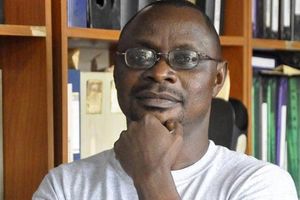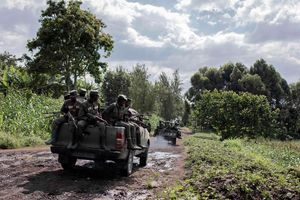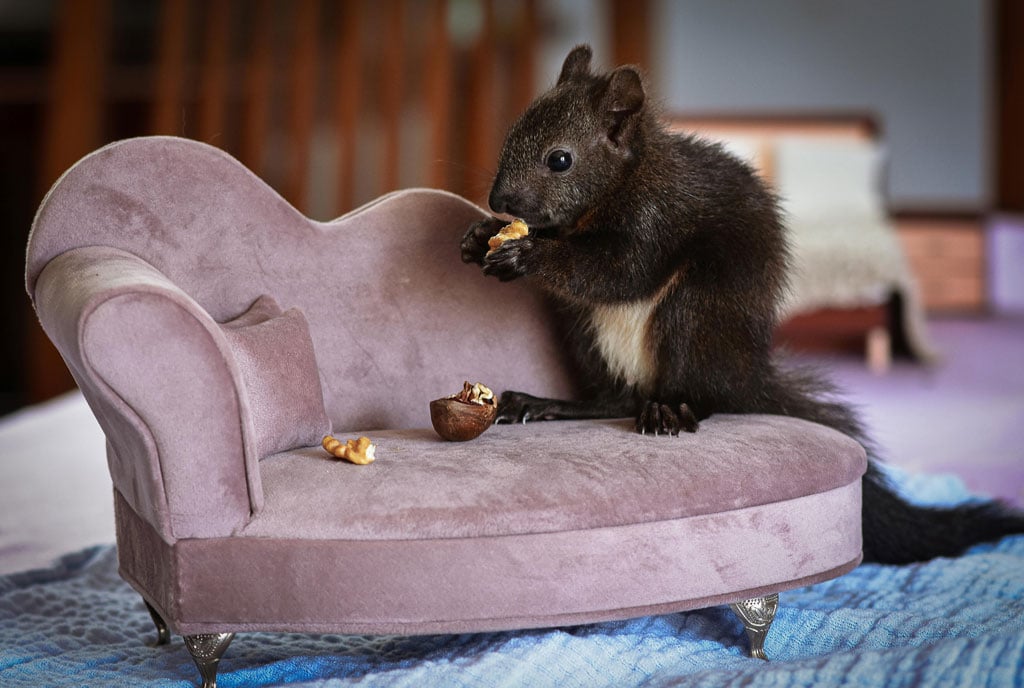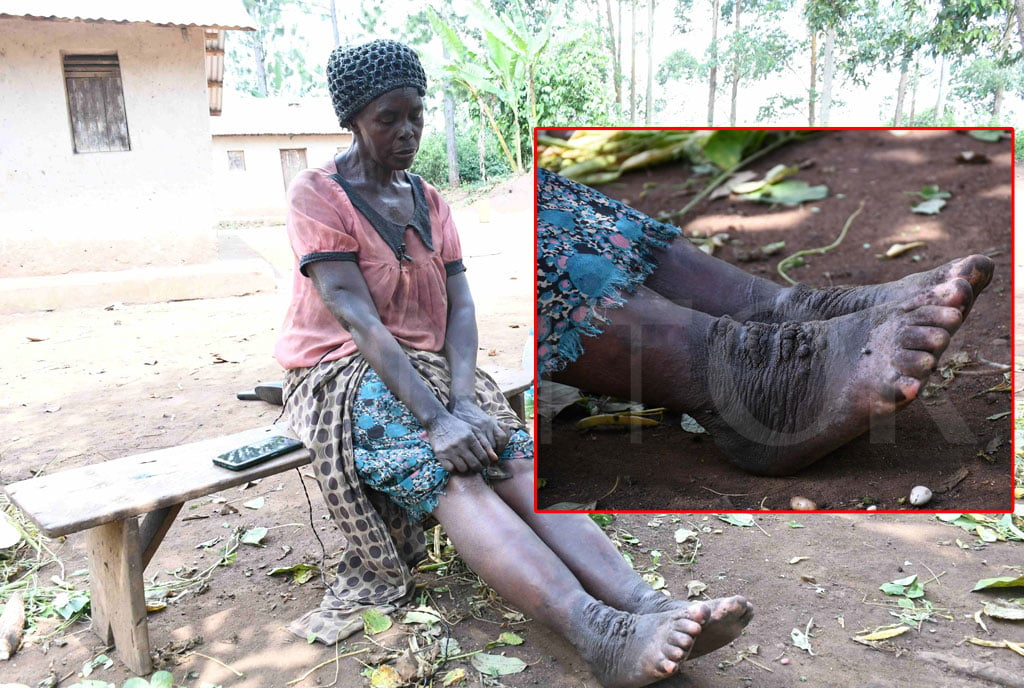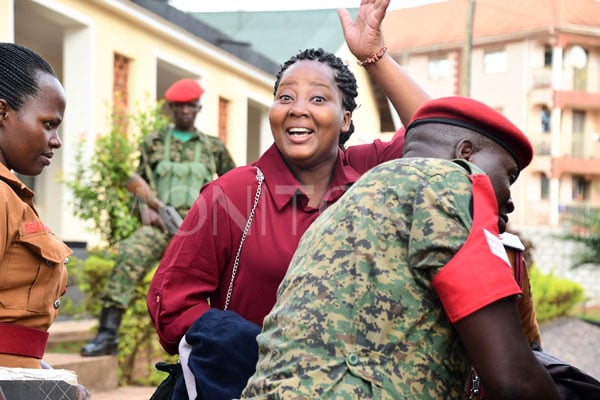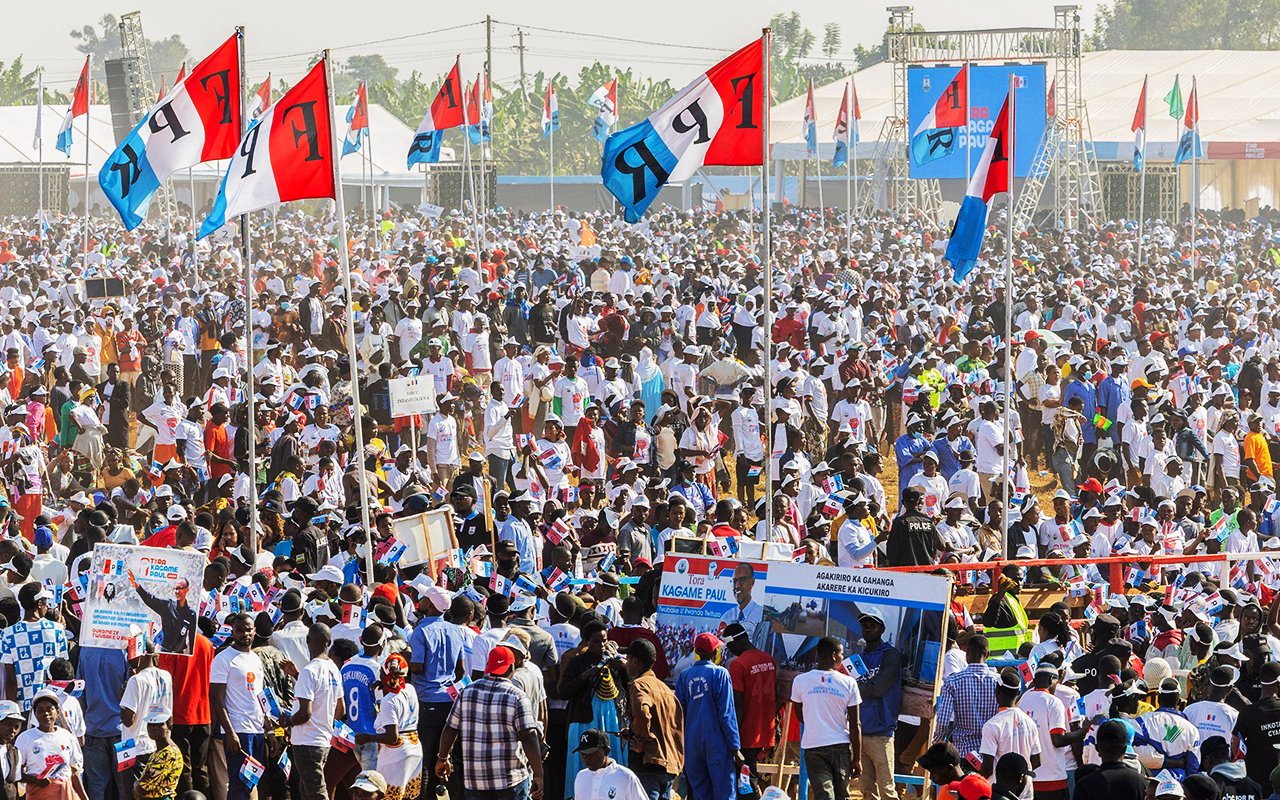
Supporters of Rwanda’s incumbent president and presidential candidate for the Rwandan Patriotic Front (RPF) Paul Kagame attend his campaign rally in Gahanga, Kicukiro District, Rwanda, on July 6, 2024. PHOTO/REUTERS
It’s all systems go in Rwanda as voters go to the polls tomorrow, Monday, July 15, to elect their president and legislators for the next five years.
The campaign season has been characterised by ecstatic crowds who have been thronging the incumbent, Paul Kagame’s rallies, and all indications are that he will win by another landslide, garnering more than 90 percent of the vote — as usual.
Up to two million Rwandans are expected to vote for the first time and are excited about taking part in shaping their country’s future. But observers and his two rivals, Frank Habineza of the Democratic Green party, and independent candidate Philippe Mpayimana, point to the growing youth unemployment problem, high taxes and widening income inequality and say they should top the issues the next government tackles.
Habineza and Mpayimana got bold as election day neared closer, raising pertinent issues that the government failed to do.
These range from economic development to national unity and security.
The economy
As he starts the new term, the president will face the task of stemming the rising debt, a bulging unemployed youth demographic as well as sustaining economic growth, amid regional and external shocks from wars in the Democratic Republic of Congo (DRC) to Ukraine and Gaza.
The government says it has created 1.1 million jobs in the past seven years, falling short of its National Strategy for Transformation (NST1) target of 1.4 million jobs.
Although analysts have described Rwanda’s debt as non-alarming and manageable in comparison with its peers, it continues to rise. Rwanda’s public debt-to-GDP ratio stood at 73.5 percent in 2023, and it is expected to rise to 78 percent in 2024, before decreasing to 77.2 percent in 2025, 74.8 percent in 2026 and 73.9 percent in 2027, according to the Ministry of Finance and Economic Planning.
“The debt trajectory will require rationalisation of spending, such as adoption of online meetings and reduction in travel expenses. Government will continue executing an economic management policy that reduces fiscal deficit, and managing national debt level, at the same time dealing with the shocks of wars and conflicts globally, and climate change, which are a hindrance to the global economy,” the ministry says.
The government says it will prioritise reduction of the fiscal deficit from 6.7 percent of GDP in 2023/24 to 5.2 percent in 2024/25; 3.4 percent in 2025/26 and 3.1 percent in 2026/27.
His two rivals have boldly criticised Kagame, raising pertinent issues that the government failed to deliver. Mr Habineza has cited taxation, noting that it has pushed up the cost of living, and businesses are struggling.
He wants land taxes scrapped and value added tax reduced from 18 percent to 14 percent to ease the prices of consumer goods.
“The tax burden is heavy, especially on small businesses, many have ended up closing. Banks are making huge profits on the backs of struggling businesses, interest rates are high, a lot of the businesses end up having their property auctioned,” he said, recommending that lenders reduce interest rates from 20 percent to 12 percent.
Mr Habineza has been pushing, in parliament, the reduction of land tax from Rwf300 ($0.23) per square metre to Rwf80 ($0.06).
But the president’s supporters do not seem to pressure him on any promises, they thank him for the far he has brought the country. Kagame is confident of victory on polling day, to earn another term in which he hopes to continue the growth trajectory.
“I know you will do the job on the 15th, I have no doubt about it. What the vote means is continuing the reconstruction and development journey of our country. Growth starts with security, protecting our people and our development. Poverty, diseases went with the past leaders who destroyed our country,” President Kagame told supporters at a rally in Gicumbi District. He said meaningful development springs from inclusivity, which he says is at the centre of the RPF governance model.
“We don’t leave anyone behind when it comes to steering our country’s development,” he said.

Rwandan President Paul Kagame is expected to cruise to a fourth term in office in the July 15, 2024 election. PHOTO/ FILE
National unity and progress
Among Kagame’s key achievements in the past 30 years is uniting Rwandans, something which didn’t come easily, given how deep division along ethnic lines the country had been since independence, leading to the 1994 genocide against the Tutsi.
Today, citizens are living and working together as Rwandans. For instance, in Bugesera District, genocide perpetrators work side by side with genocide survivors on joint agricultural projects.
While some critics have termed the unity and reconciliation cosmetic, it has yielded tangible fruit. The RPF government inherited a country with chronic poverty. A USAid study showed that in 1990, Rwanda was the poorest country in the world, which was nothing new because, in 1976, it was the third-poorest in the world.
In 1995, the national budget was a paltry Rwf56 billion ($42.7 million) and almost all of it was donor funded. Three decades later, the country’s budget for 2024-2025 fiscal year is Rwf5,690 billion ($4.3 billion), with 60 percent domestically funded. In the immediate aftermath of the 1994 genocide the economy grew at negative 11.4 percent, then it turned around and grew by 7-8 percent between 2003 and 2018. In 2019, it grew by 8.6 percent.
After the Covid blues, the economy is projected to grow by 8.2 percent in 2024. Per capita income, which was $200 in 2000, had increased to $830 by 2020, according to government data.
Rwanda was among a few countries that met all UN Millennium Development Goals before transitioning to Sustainable Development Goals. In 2023, Rwanda recorded $2.4 billion worth of investments, a 50 percent increase, compared with the previous year, and expected to generate 40,000 jobs.
In the same year, its tourism sector fetched $620 million, and mining earned upwards of $800 million, with the service sector being the main driver of the economy.
Rwanda has achieved 74 percent electrification rate in the past seven years, with 1.5 million new households connected to electricity, from 34.4 percent in 2017.
Over 1,600kms of national and district roads have been paved and 3,700kms of feeder roads built. This has led to improvements in services such as healthcare education, and technology, positioning Rwanda as one of Africa’s fastest-growing economies.
A significant milestone in healthcare was achieved with the inauguration of Africa’s first BioNTech mRNA-based vaccine manufacturing plant in Kigali.
The Kagame administration has negotiated and attracted capital through a number of infrastructural projects, foremost of which is the Bugesera International Airport, which is under construction.
It plans to sell 51 percent stake in the airport to the Qataris, who are also eyeing 49 percent of the national carrier RwandAir. The Qataris have provided financing for the airport project, while the partnership deal with RwandAir is close to conclusion. The two deals are expected and take the country’s aviation sector to the next level.

President Paul Kagama.
One of the concerns from observers regarding these deals, however, has been the fact that they are seldom open to public scrutiny.
Other deals, such as the Visit Rwanda sleeve-shirt deal with European football clubs Arsenal, Paris Saint Germaine (PSG) and now Bayern Munich, have been widely criticised as wasteful, but President Kagame makes a case for them.
“The yield surpasses, by far, what we invested in this partnership ourselves,” he said in 2023, about the Arsenal and PSG deals. “We invested something in the partnership and are getting more, by a big factor.”
“We are having another one coming up with another famous football team. When you see us going after another we know what we are pursuing, and that’s not to lose money,” he said before signing the deal with Bayern.
Besides getting high numbers of tourists coming for the gorilla trek, Rwanda has become known for its meetings and international conferences and exhibitions (MICE) subsector.
Security, diplomacy, and the Congo question
In Kagame’s current term, Kigali has fallen out with most of its neighbours, earning the tag of the region’s “bad boy”. In 2019, a major tiff with Uganda over political and security issues led to the closure of their common borders for three years; and recently, Kigali has been at logger heads with DR Congo and Burundi over allegations of supporting rebel groups fighting the regimes in Kinshasa and Gitega, respectively, allegations Kigali has always denied.
Burundi in this year closed its border with Rwanda, accusing Kigali of backing the Red-Tabara rebels, accused of carrying out terror activities on Burundian soil, which led to death of people, including children.
Rwanda’s relations with DRC have completely collapsed with Kinshasa blaming Kigali for backing M23 rebels bent on ousting the government. Due to this falling-out President Felix Tshisekedi of DRC expelled Rwanda’s ambassador, and cancelled the lucrative Kigali-Kinshasa route operated by RwandAir and partially blockaded the border.
And this has greatly impacted trade between the two neighbours, whose inter-trade was in excess of $800 million annually.
Ismael Buchanan, senior lecturer of political science at University of Rwanda, says that whoever becomes president will have to prioritise and work on our diplomacy and foreign policy, especially in the region. “Regional insecurity has posed a risk to our domestic stability. If President Kagame is re-elected he will need to pursue the approach of engaging intermediaries like Qatar, or others, to mediate between Rwanda and DRC to resolve the conflict,” he said.
He said Rwanda should also start laying the groundwork for re-opening its embassies in Burundi and DRC, and this can be done through first of all reopening diplomatic channels and talks.
Rwanda’s stock in continental and international politics and diplomacy has been growing over the years, largely due to how it strategically positions itself with ready pragmatic solutions to regional and international challenges that other countries face.
Rwanda has sent troops to Mozambique to fight insurgents, and the Central African Republic for peacekeeping, including a special protection force during the country’s presidential election.
Although it maintains that the military operations are motivated by its history and its commitment to promoting international peace and security, analysts link the deployments to the growing diplomatic rapprochement between Kigali and its Western allies, in particular, France.
A similar deal is said to be in the works for Benin to help rout out its insurgents in the Sahel region. Besides prestige and being indebted to bigger Western powers, Rwanda’s successful military diplomacy has also opened up investment opportunities for Rwandan firms such as ruling party-owned Crystal Ventures and others that have opened operations in countries such as Mozambique.
“The newly elected president will have to ensure continuity of Rwanda’s foreign military missions started in countries like Mozambique and CAR, because it has been working out well for everyone,” Buchanan said.
Rwanda is the fourth-largest contributor to UN’s peacekeeping operations and some special political missions, with 5,931 personnel as of February 2023, according to UN data.
Kagame Succession
The RPF says it is “seriously” working on getting a replacement for President Kagame, following his repeated pleas that it find someone to take over from him.
Secretary general Gasamagera Wellars told The East African that finding someone to replace the current chairman is going to be one of the party’s pre-occupation in the next term.
“Our chairman is always serious, we took up the matter of finding a replacement for him upon ourselves, and it is work in progress. At this juncture we are preparing to renew our trust in him, and we call upon Rwandans to maintain that trust in him,” he said.
Although his party, and millions of his supporters seem to want Kagame to continue leading the country, the 66-year-old leader has recently made it clear that his time in office is nearing an end.
Challenging his party to speed up finding someone to take over the mantle at the helm of the party leadership, who it can front as candidate for head of state.
In his acceptance speech after being nominated to be RPF’s candidate in the presidential election, where he was endorsed by 99.1 percent of the votes cast, Kagame challenged the party to “relieve him of the burden” of being nominated party candidate over and over again.
The subject of President Kagame’s successor has always been a complex one to navigate by the establishment in Kigali, partly because it has often been looked at through the lens of the country’s tragic past. Having led a rebel group that ousted the past divisive, genocidal regime, and stopped the genocide, Kagame was first elected president in 2000, and in the 24 years at the helm, he has championed one of the most remarkable national recovery stories of the 21st Century.
But critics and human rights lobbies accuse his government of limiting political freedoms and suppressing dissent.



